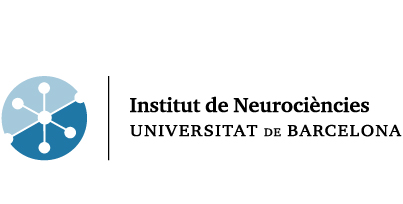
CARLES ESCERA
Position: Full Professor
Research team
I. Concepcion Clemente Lapena
Associate Professor
iclemente (at) ub.edu
Maria Jose Corral Lopez
Associate Professor
mjcorral (at) ub.edu
Marc Via Garcia
Assistant Professor
mvia (at) ub.edu
Miriam Cornella Griful
Assistant Professor
mcornella (at) ub.edu
Jordi Costa Faidella
Assistant professor
jcostafaidella (at) ub.edu
Natàlia Gorina Careta
Early stage researcher
ngorina (at) ub.edu
Fran López Caballero
Early stage researcher
franlopezc (at) ub.edu
Anne Lenka M. Selinger
Early stage researcher
lenkaselinger (at) ub.edu
Teresa Ribas Prats
Early stage researcher
t.ribas (at) ub.edu
Contact details
Prof. Carles Escera
Department of Clinical Psychology and Psychobiology
Faculty of Psychology, P. Vall d’Hebron 171
08035 Barcelona (Catalonia-Spain)
+3493 31 25048
cescera (at) ub.edu
Research Interests
The Brainlab led by Carles Escera, belongs to the Institute of Neurosciences of the University of Barcelona (UB), and it is located at the Faculty of Psychology, Department of and Clinical Psychology and Psychobiology. We are a small, multinational, interdisciplinary group, including psychologists, biologists, engineers, and physicists. We seek to unravel the brain mechanisms of cognitive functions, including attention, auditory perception, working memory and executive control. Also, we are interested in emotional and musical processing, and in cognitive dysfunction in a broad spectrum of neurological, neurodevelopment and psychiatric disorders.
To achieve our goals, we combine the recording of the human electroencephalogram (EEG) to analyze evoked and event-related brain potentials (such as the Frequency Following Response – FFR , the Middle Latency Response –MLR, or the Mismatch Negativity –MMN) and oscillatory brain activity (such as the gamma band response –GBR), with magnetoencephalography (MEG), functional magnetic resonance imaging (fMRI) and neurogenetic analysis. Part of our research is conducted in collaboration with labs located worldwide, such as the University of Helsinki (Finland), the Fukushima Medical University (Japan), the University of Leipzig (Germany) or the University of Salamanca (Spain).
Current Research Lines
- The role of the ascending auditory pathway in auditory cognition
- Regularity encoding and deviance detection in a hierarchically organized auditory system
- Auditory regularity encoding in Autism Spectrum Disorders
- Repetition suppression along the auditory hierarchy
- Interactions between predictive coding and predictive timing in audition: characterizing the role of rhythm in repetition suppression through entrained brain oscillations
Technologies / methods
- Electroencephalography (EEG). Analysis of event-related potentials and oscillatory activity
- Magnetoencephalography (MEG)
- functional Magnetic Resonance Imaging (fMRI)
Highlighted publications
· Costa-Faidella, J., Baldeweg, T., Grimm, S., & Escera, C. (2011). Interactions between “what” and “when” in the auditory system: temporal predictability enhances repetition suppression. Journal of Neuroscience, 31, 18590-18597.
· Slabu, L., Grimm, S., & Escera, C. (2012). Novelty detection in the human auditory brainstem. Journal of Neuroscience, 34, 1447-1452.
· Recasens, M., Grimm, S, Capilla, A., Nowak, R., & Escera, C. (2014). Two sequential processes of change detection in hierarchically ordered areas of the human auditory cortex. Cerebral Cortex, 24, 143-153.
· Cacciaglia, R., Escera, C., Slabu, L.S., Grimm, S., Sanjuán, N., Ventura-Campos, A., Ávila, C. (2015). Subcortical detection of auditory regularity violations in humans: direct evidence from functional magnetic resonance imaging. Neuropsychologia, 68, 51-58.
· Selinger, L., Zarnowiek, K., Via, M., Clemente, I.C., Escera, C. (2016). Involvement of the serotonong transporter gene in accurate subcortical speech encoding. Journal of Neuroscience, in press.



